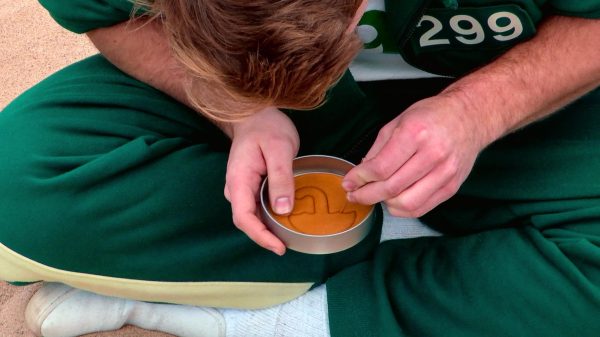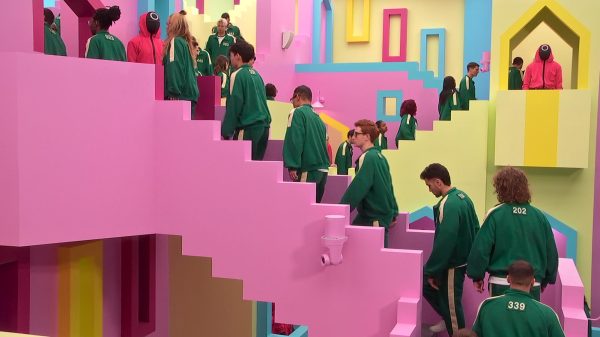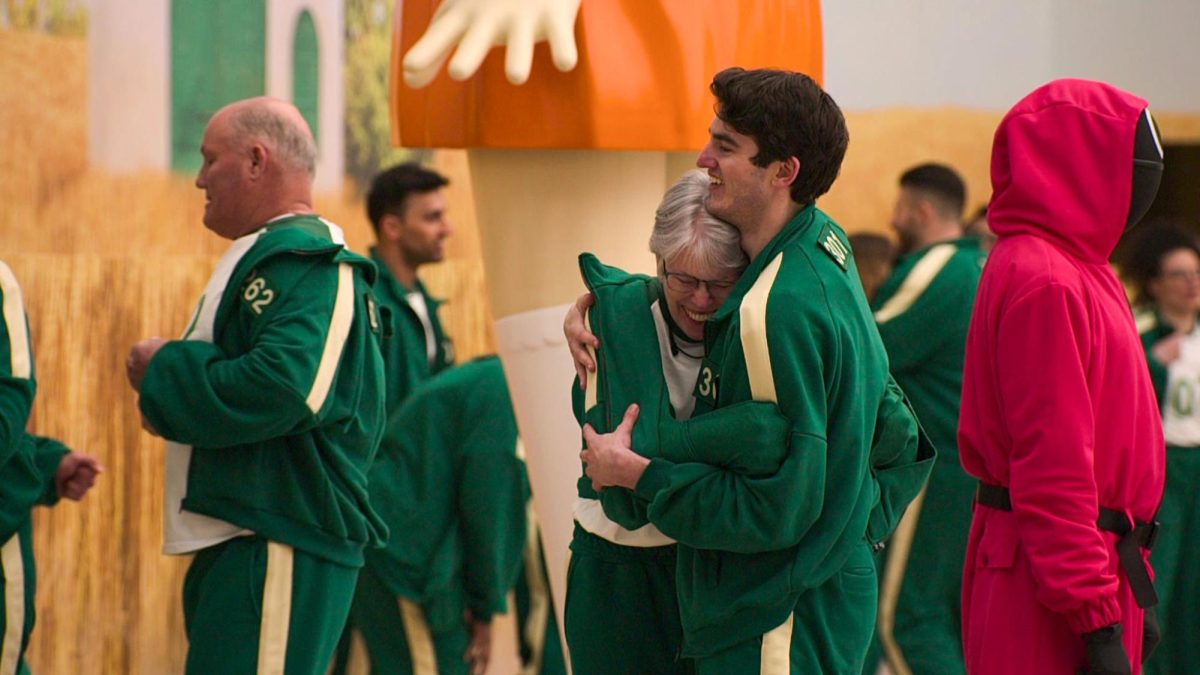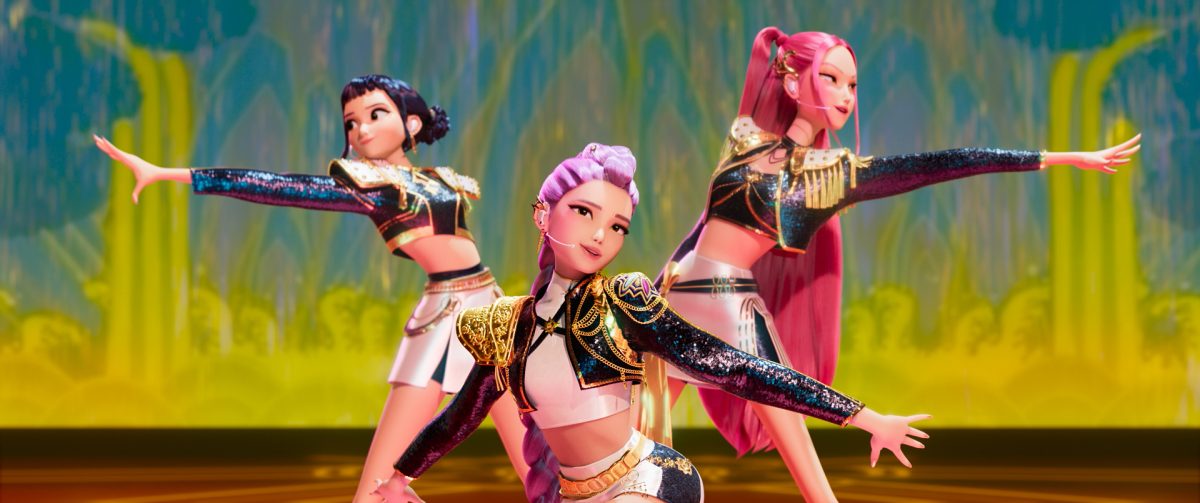With a second season of Netflix’s “Squid Game” set to be released sometime this year (the streaming service teased a 15-second clip in its “Next on Netflix 2024” video last month), fans who made the series so popular may rewatch the original.
And they can save a lot of their screen time by skipping Netflix’s reality TV version, titled “Squid Game: The Challenge.”
Produced by Studio Lambert and The Garden, “The Challenge” comprises 10 episodes, one more than the 2021 original that’s based on a set of challenges for its fictionalized characters.
After viewing half of the 256-minute program, it’s clear that the reality-style version fails to create the suspense and drama needed to keep viewers interested in watching the remaining episodes.
According to a Friday, Dec. 1, article from netflix.com, 456 contestants out of approximately 81,000 applicants were chosen to join the 16-day filming of the show at Wharf Studios, London, starting in January 2023. Those interested in being on the reality series submitted a casting form, which requires basic information such as name, email, state of residence, nationality, photos of themselves from different angles and a one-minute video introducing themselves, why they want to be part of the series, game plans and what they would do if they got to win the $4.56 million cash prize.
The idea to keep the number of players the same works because it carries the meaning of the key symbol of the story with the significance of 456 — the grand prize and the number of contestants. Having a lot of similarities such as the players wearing green outfits and having the same background music throughout the episodes is understandable knowing it’s a spin-off, but it hinders the viewers’ interest as it creates too many overlaps, making the show predictable without much freshness.
The first episode begins with some of the players in casual clothes in different settings, showing how they are invited to the game as the car pulls up. Because the players clearly act it out without the seamless professional performance the fictional series provides, it seems awkward as if they are intentionally copying the plot.

Still, the producers include some interesting modifications. For example, instead of tug of war, the third episode features a more American game like WarShips; tests and challenges are added in between games to keep it fresh.
Yet, the change fails to leave a pleasant surprise. Instead, omitting the tug of war leaves the audience disappointed about missing one of the most awaited scenes of the original plot. If the spin-off series were to have new games and unexpected replacements, it gives the impression that it would have been better to introduce an entirely new set of traditional Korean games, spotlighting more of the unknown games to expose the culture, rather than mildly changing some.
It’s not worth watching a group of five contestants who volunteer to commit to a challenge called “chore” in the fifth episode. They end up working together to squeeze three jars worth of orange juice under a 30-minute time limit. That segment just doesn’t have much correlation to “Squid Game” and the unique Korean games that the series offered.
The intense and deliberately scripted scenes from the original drama that captured viewers’ interest were definitely missing here. The “Squid Game” further explains each game by incorporating scenes representing significant childhood memories, but they’re replaced by players squeezing orange juice or cutting carrots, arousing disappointment in the depth of the plot.
The special effects also fail. Instead of that gunshot noise that resonates the whole space, signaling elimination from “Squid Game,” we see an anti-climatic splat of black paint followed by a firing sound with contrastingly peaceful music.
Obviously, the contestants who lose in this version cannot die, so they act out their collapse. Faking their demise definitely does not raise the intensity level.

Moreover, the show is monotonous in general because of the documentary-style format, which has dull interviews in between the scenes. This contrasts especially with the original, which dramatically illustrates the personal backgrounds of the characters through professional acting and cinematography. The intense storyline implies heavy topics like capitalism’s vice in humanity through connections between the series of competitions and some of the main characters’ backgrounds, while “The Challenge” didn’t seem like it had much quality that contributed to the original’s popularity.
Despite numerous red lights posed both within the series and behind the scenes, the recruitment of the second season of “Squid Game: The Challenge” opened via its website with the same form as the first already started, according to the Friday, Dec. 8, article from netflix.com. While the second season of “Squid Game” is set to release later in 2024, the sequel of the spin-off should be eliminated if it cannot make up with drastic changes in the production and edits to match the intensity of the original.














